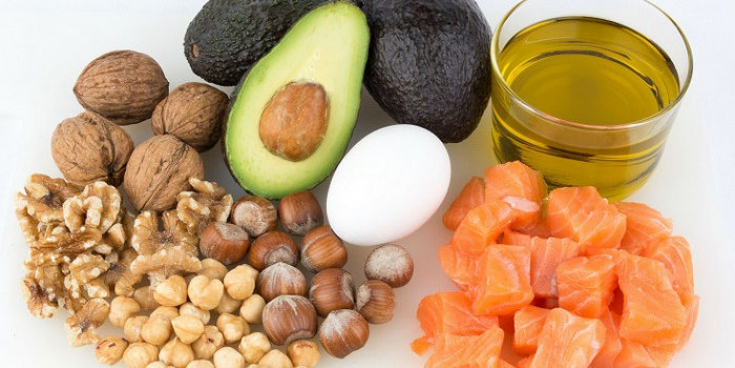About 30 years ago, the content of Omega-6 and Omega-3 fatty acids in plasma phospholipids in adults with atopic eczema was studied. It was then that the connection between dermatological pathology and impaired metabolism of fatty acids was first established.
The intake of fatty acids has improved the clinical course of the disease, which has led to the use of these substances as an adjunct to the main treatment of various skin diseases. Read on estet-portal.com why fatty acids are so important in dermatology, and what their deficiency can be fraught with.
Polyunsaturated fatty acids: the main assistants of a dermatologist
Today, polyunsaturated fatty acids are known to inhibit the synthesis of eicosanoids from arachidonic acid, thereby suppressing the inflammatory response, reducing itching, and may be effective in preventing many allergic reactions.
Topical application of eicosapentaenoic acid has been shown to have photoprotective and anti-aging effects.
Thus, taking omega-3 fatty acids can effectively complement the main treatment of atopic dermatitis, psoriasis, eczema and many other dermatological diseases.
What are omega acids and why are they so important
Why polyunsaturated fatty acids are so important for vegetarians
Remarkably, significant decreases in omega-3, 6 and 7 fatty acids have been observed in individuals following a vegetarian diet.
A vegetarian diet provides only enough Omega-3 fatty acids to survive. And in order for polyunsaturated fatty acids to maintain a healthy appearance of the skin, such patients should be advised to additionally include in the diet eicosapentaenoic and docosahexaenoic acids, or foods rich in these compounds.
Read the latest articles in Telegram!
Vegetarians also have lower cholesterol levels in their skin, resulting in drier skin. This is due to a disruption in the normal functioning of the water-lipid mantle, and as a result, increased transepidermal moisture loss.

Diet for lack of polyunsaturated fatty acids
Among vegetarian foods that contain high concentrations of polyunsaturated fatty acids, the main ones are:
• nuts (except walnuts);
• peanuts;
• beans;
• olive and sunflower oil;
• linen;
• soy;
• also high concentration of omega-3 fatty acids in hemp oil, evening primrose oil and borage oil.
However, fish, fish oil and seafood are the best way to fill the deficiency of polyunsaturated fatty acids. Even lacto-vegetarians who consume dairy products do not provide a total saturation of omega-3 fatty acids. Such patients may be advised to supplement their diet with seaweed.
A vegetarian consumes only a third less polyunsaturated fatty acids than a person with a regular diet.
Full and healthy nutrition — this is the main secret of healthy and beautiful skin. Therefore, it is very important for a dermatologist to correct the patient's diet, regardless of the problem with which he applied.
You may also be interested in: What acne diet will help improve skin







Add a comment